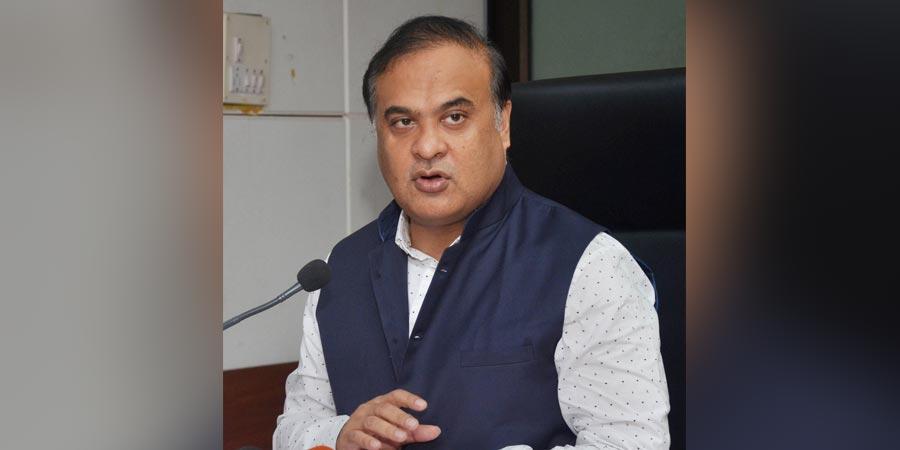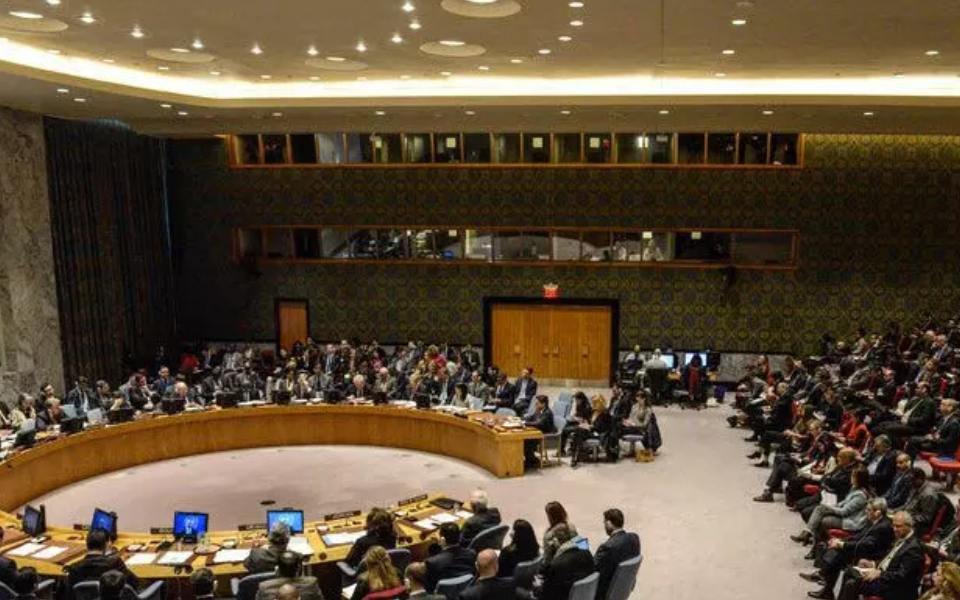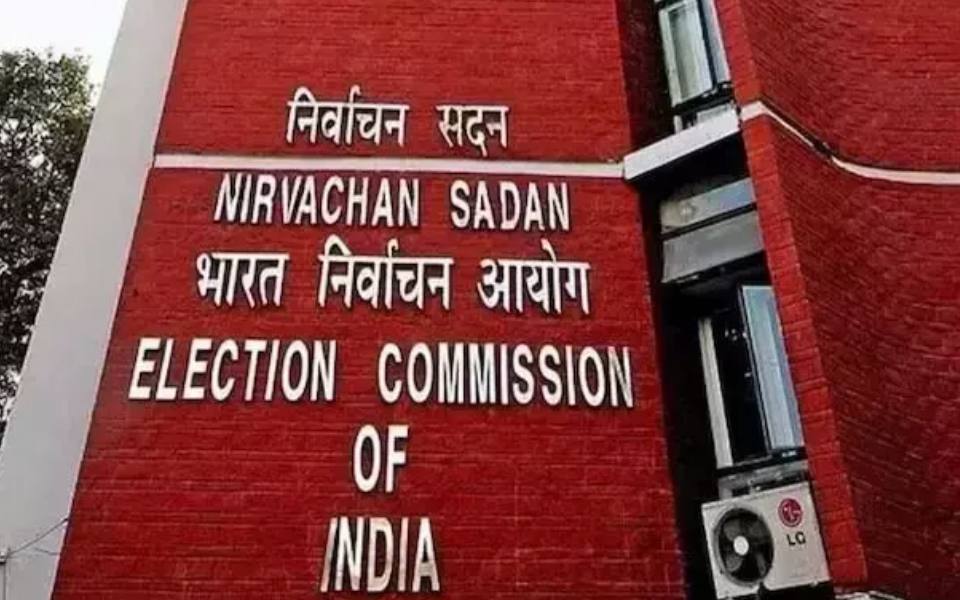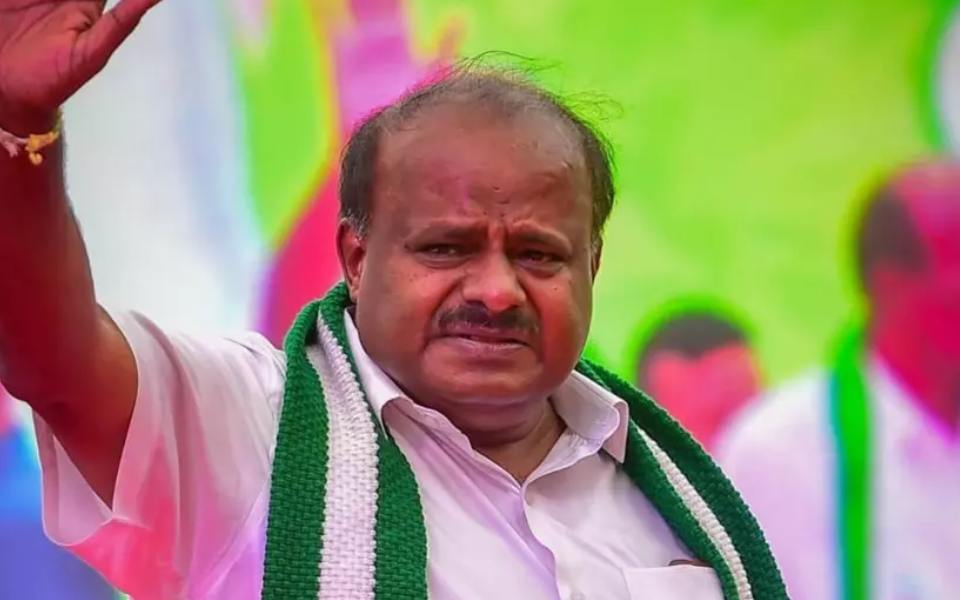Guwahati, Jun 10: Days after a number of families were evicted from "encroached land' in three districts of Assam, Chief Minister Himanta Biswa Sarma on Thursday urged the minority community to adopt a decent family planning policy for population control to reduce poverty.
All stakeholders in the community must come forward and support the government in helping reduce poverty in the community which is primarily due to an unabated increase in population, Sarma said on the occasion of the completion of 30 days of his government.
According to the 2011 Census, Muslims comprise 34.22 per cent of Assam's total population of 3.12 crore and they are in majority in several districts. While Christians form 3.74 per cent of the total number of people in the state, the percentage of Sikhs, Buddhists and Jains is much less than one per cent.
Referring to the recent evictions from areas allegedly encroached by members of the minority community in three districts of the state, he said that the government cannot allow land encroachment in temples, 'sattras' (Vaishanavite institutions), forests or any other place with which sentiments of people are associated.
Land encroachment takes place when the living space shrinks with an increase in population, Sarma said.
Instead of "criticising us for taking steps to free encroached land, various stakeholders and leaders of the community must do an introspection", he said.
Congress MP of Barpeta, Abdul Khaleque, on Wednesday tweeted that he urged Gauhati High Court Chief Justice Sudhanshu Dhulia to take suo motu cognizance of the eviction drive, claiming that it was done in violation of a court order which said that any decree for eviction/dispossession or demolition should remain in abeyance considering the pandemic.
The chief minister said that his government is not against any community and is there for all people of the state.
"The government is the guardian of all poor people but need the support of the community in tackling the issue of population as it is the root cause of poverty, illiteracy and consequent lack of proper family planning," he said.
Sarma said that his government will work towards educating the women of the community so that the problem can be tackled effectively.
The community leaders and elected representatives have also assured the government that they do not want encroachment of temple, sattras, and forest lands, he said.
The chief minister urged the community leaders to encourage population control among the members and the government will take necessary steps in this regard.
Sarma said that after assuming office last month, he had directed the police to launch a crackdown on drugs and cattle smuggling and adopt a 'zero-tolerance policy' in this regard.
"I am not completely satisfied but during the last one month nearly Rs 24 crore worth of different types of drugs have been seized and 500 people have been arrested in this connection", he said.
This battle against drugs will continue "till we completely stop transit and consumption of drugs in the state," he added.
Sarma said that seven forensic laboratories will be set up for testing the samples to speed up the trial process and in the next budget, more allocation will be made for rehabilitation centres.
The state serves as a transit for cattle smuggling and legally one cannot do much to stop it. So it has been decided to enact a law by which transit of cattle through the state will be made illegal, Sarma said.
The chief minister said that though 30 days is not a yardstick to measure the success or the failure of a government, but morning shows the day.
"For the next six months, we will not focus on bringing reforms in education, health, social welfare and fundamental reforms of governance. We will act and not speak or debate unnecessarily," he said.
Sarma also listed highlights of his government's "achievements" during the past 30 days.
They include tackling the second wave of COVID-19 effectively, increasing the states share in Numaligarh Refinery Limited to 26 per cent from 12.5 per cent, providing additional land to the Batadrava Than Cultural and Tourism project at the birthplace of Vaishnav saint Srimanta Sankardeva and hiking the daily wage of tea garden workers by Rs 38.
Sarma, along with 13 ministers, had taken the oath of office on May 10 after the BJP and its allies - the AGP and the UPPL - won 75 of the 126 seats in the assembly polls.
Let the Truth be known. If you read VB and like VB, please be a VB Supporter and Help us deliver the Truth to one and all.
United Nations, Apr 19: The US has vetoed a resolution in the UN Security Council on the latest Palestinian bid to be granted full membership of the United Nations, an outcome lauded by Israel but criticised by Palestine as “unfair, immoral, and unjustified".
The 15-nation Council voted on a draft resolution Thursday that would have recommended to the 193-member UN General Assembly “that the State of Palestine be admitted to membership in the United Nations.”
The resolution got 12 votes in its favour, with Switzerland and the UK abstaining and the US casting its veto.
To be adopted, the draft resolution required at least nine Council members voting in its favour, with no vetoes by any of its five permanent members - China, France, Russia, the United Kingdom and the United States.
Palestinian attempts for recognition as a full member state began in 2011. Palestine is currently a non-member observer state, a status that was granted in November 2012 by the UN General Assembly.
This status allows Palestine to participate in proceedings of the world body but it cannot vote on resolutions. The only other non-member Observer State at the UN is the Holy See, representing the Vatican.
Israel’s Foreign Minister Israel Katz praised the US for vetoing what he called a “shameful proposal.”
“The proposal to recognise a Palestinian state, more than 6 months after the largest massacre of Jews since the Holocaust and after the sexual crimes and other atrocities committed by Hamas terrorists was a reward for terrorism”, Katz wrote on X, after the US veto.
US Ambassador Robert Wood, Alternative Representative for Special Political Affairs, said in the explanation of the vote at the Security Council meeting on Palestinian membership that Washington continues to strongly support a two-state solution.
“It remains the US view that the most expeditious path toward statehood for the Palestinian people is through direct negotiations between Israel and the Palestinian Authority with the support of the United States and other partners,” he said.
“This vote does not reflect opposition to Palestinian statehood, but instead is an acknowledgement that it will only come from direct negotiations between the parties.”
Wood said there are “unresolved questions” as to whether Palestine meets the criteria to be considered a State.
“We have long called on the Palestinian Authority to undertake necessary reforms to help establish the attributes of readiness for statehood and note that Hamas - a terrorist organisation - is currently exerting power and influence in Gaza, an integral part of the state envisioned in this resolution,” he said, adding that “For these reasons, the United States voted “no” on this Security Council resolution.”
Wood noted that since the October 7 attacks last year against Israel by Hamas, US President Joe Biden has been clear that sustainable peace in the region can only be achieved through a two-state solution, with Israel’s security guaranteed.
"There is no other path that guarantees Israel’s security and future as a democratic Jewish state. There is no other path that guarantees Palestinians can live in peace and with dignity in a state of their own. And there is no other path that leads to regional integration between Israel and all its Arab neighbours, including Saudi Arabia,” he said.
The Palestinian Authority President, Mahmoud Abbas, sharply criticised the US veto, saying that it was “unfair, immoral, and unjustified, and defies the will of the international community, which strongly supports the State of Palestine obtaining full membership in the United Nations.”
Riyad Mansour, Permanent Observer of the State of Palestine, said that “our right to self-determination has never once been subject to bargaining or negotiation.
“Our right to self-determination is a natural right, a historic right, a legal right. A right to live in our homeland Palestine as an independent state that is free and that is sovereign. Our right to self-determination is inalienable...,” he said.
Getting emotional and choking up as he made the remarks, Mansour said that a majority of the Council members “have risen to the level of this historic moment” and have stood “on the side of justice, freedom and hope.”
He asserted that Palestine’s admission as a full member of the UN is an “investment in peace.”
On April 2, 2024, Palestine again sent a letter to UN Secretary-General Antonio Guterres requesting that its application for full UN membership be considered again.
For a State to be granted full UN membership, its application must be approved both by the Security Council and the General Assembly, where a two-thirds majority of the members present and voting is required for the State to be admitted as a full member.
Earlier in the day, Guterres, in his remarks to a Council meeting on the Middle East, warned that the region is on a “knife edge”.
“Recent escalations make it even more important to support good-faith efforts to find lasting peace between Israel and a fully independent, viable and sovereign Palestinian state,” Guterres said.
“Failure to make progress towards a two-state solution will only increase volatility and risk for hundreds of millions of people across the region, who will continue to live under the constant threat of violence,” he said.
The UN, citing the Ministry of Health in Gaza, said that between October 7 last year and April 17, at least 33,899 Palestinians have been killed in Gaza and 76,664 Palestinians injured. Over 1,200 Israelis and foreign nationals, including 33 children, have been killed in Israel, the vast majority on October 7.
As of April 17, Israeli authorities estimate that 133 Israelis and foreign nationals remain captive in Gaza, including fatalities whose bodies are withheld.





